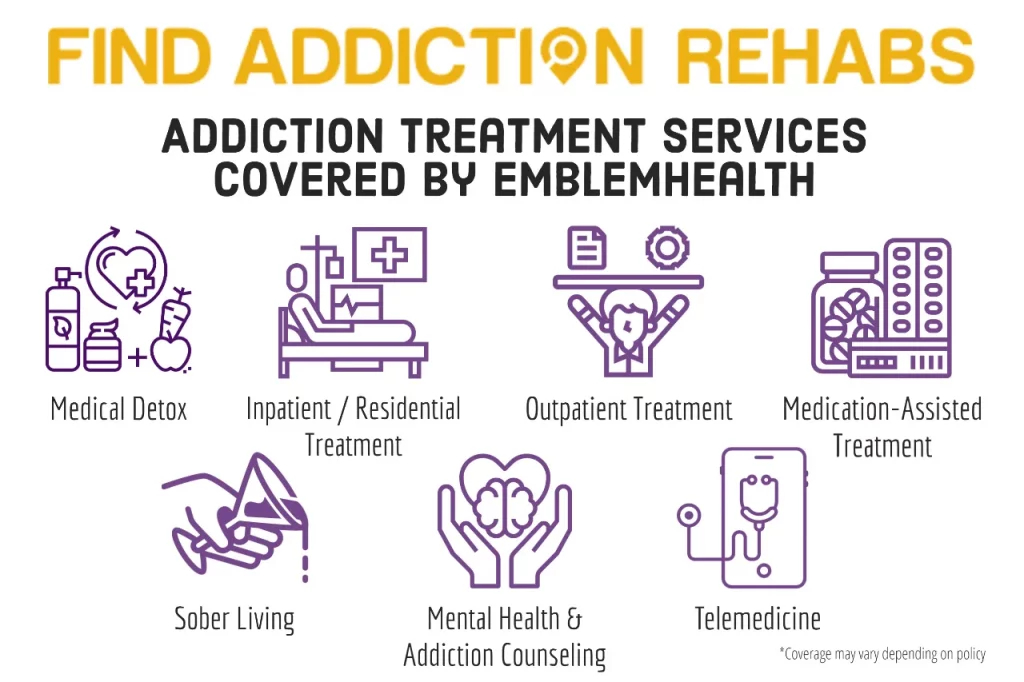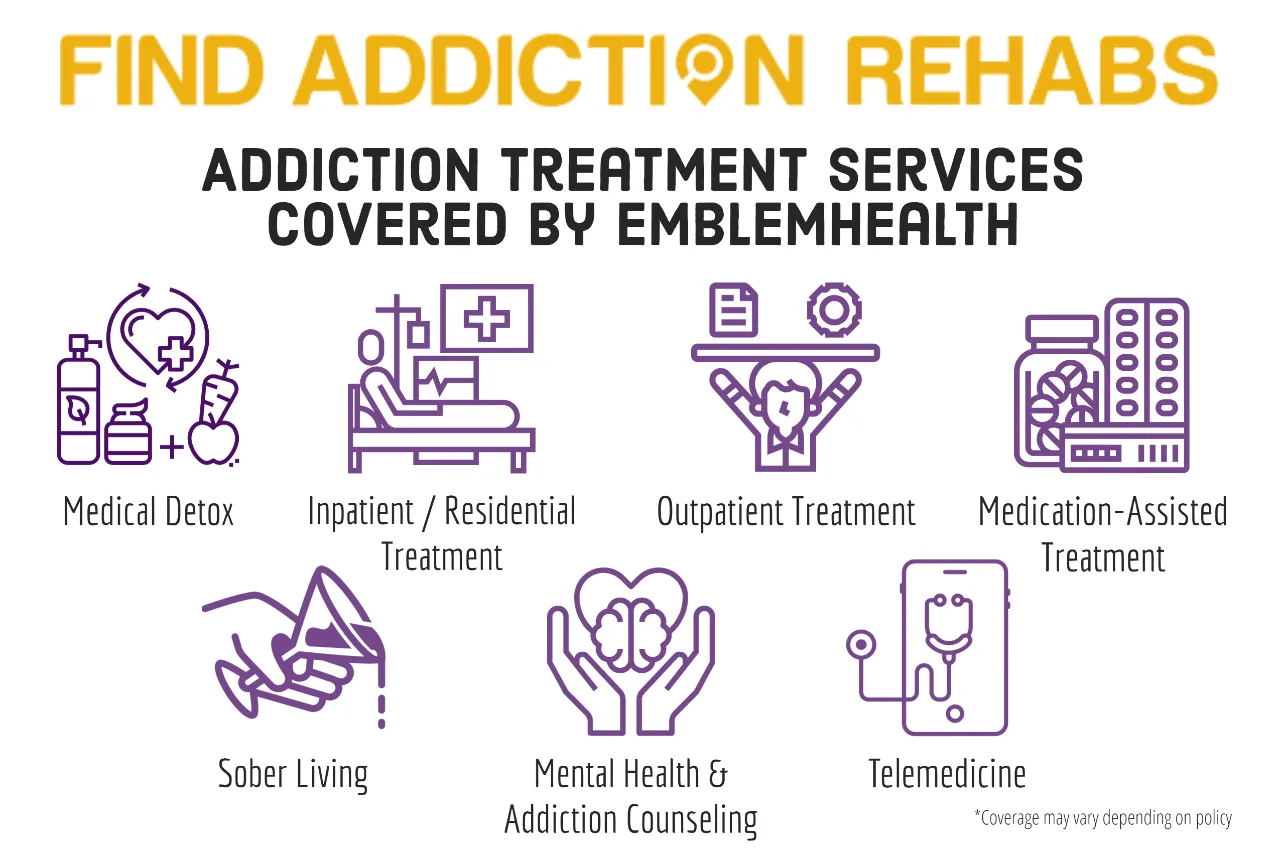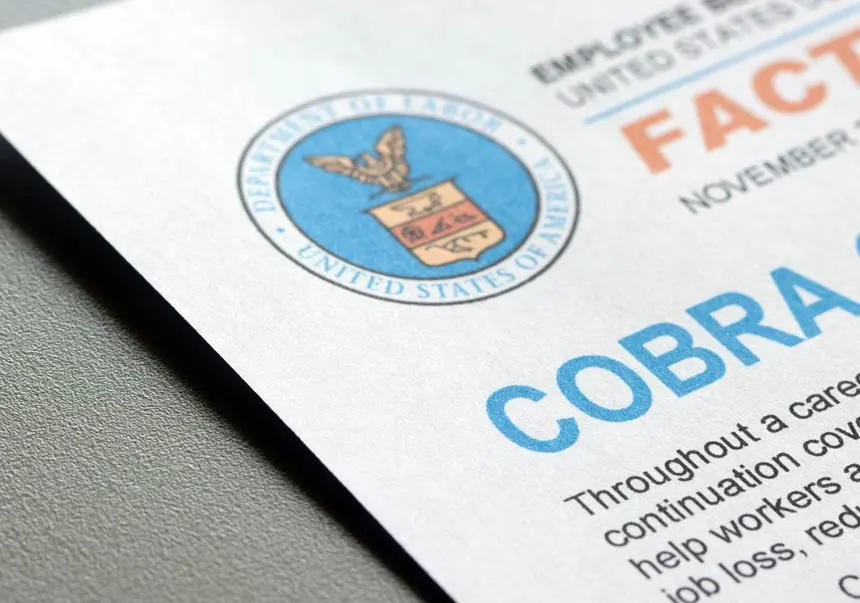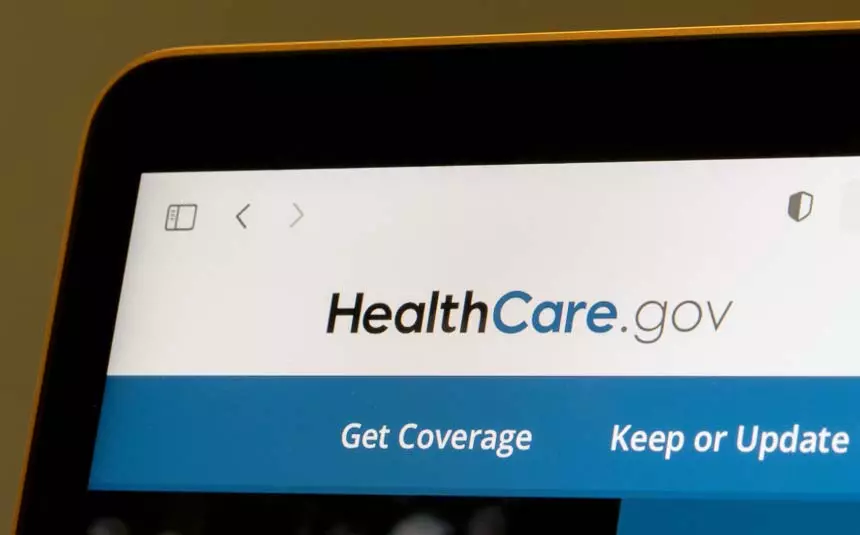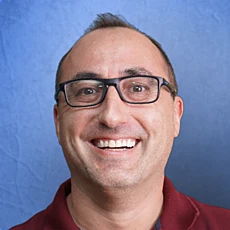Obtaining the Best Treatment with GHI Insurance
Table of Contents
- Obtaining the Best Treatment with GHI Insurance
- What is GHI Insurance?
- Does GHI Insurance Cover Mental Health & Substance Abuse Treatment?
- Using Your GHI Insurance Plan to Cover Drug and Alcohol Treatment
- How Much Does GHI Insurance Cover?
- Types of GHI Insurance Plans
- Rehabs that Accept GHI Insurance: The Metal Tier System
- How do I Know What My GHI Insurance Will Cover?
- I Just Lost My Job, How Do I Know if I am Still Covered?
- How Can I Pay the Costs Not Covered by My Insurance Plan?
- How Can I Get GHI Insurance Coverage for Detox and Rehab?
- How Long Will GHI Insurance Cover Rehab?
- GHI Insurance Drug Rehab Facilities: Finding Drug Rehabs That Accept GHI
- Will GHI Insurance Cover Out of State Rehab?
- Do Treatment Centers Need to be In-Network?
- Definition of General Insurance Terms Used in this Article:
- Get Detox and Rehab Services Covered by GHI Insurance Now
- Medically Reviewed By
If you or someone you know requires addiction treatment, such as rehab or detox, and you’re wondering if GHI Insurance would cover these costs, the answer is yes. Take a deep breath and relax since various GHI insurance in every state in the country covers addiction treatment fees. Over the course of this article, we’ll delve in great detail into rehabs that accept GHI Insurance, and help you get answers to many of the top concerns about getting the best addiction treatment possible with your GHI policy.
The type of GHI coverage you can get is determined by your location and the form of your insurance plan and can be verified without charge in minutes by our team of experts. But first, let’s have a clear picture of what GHI is all about.
What is GHI Insurance?
Group Health Incorporated (GHI), now EmblemHealth, is one of the most well-known not-for-profit health insurance carriers in New York and the Tri-State area, with more than 3 million people covered. The company’s history extends back to the Great Depression’s apex in the 1930s. The concept was to give health insurance to anyone who might face financial hardship as a result of a sickness or accident.
Individuals, families, and businesses can still benefit from the company’s high-quality, low-cost health insurance programs. If you’re a member of EmblemHealth, you’ll be able to find a provider who matches your needs, whether you’re seeking drug rehab, dentistry, vision, or behavioral health treatments.
Does GHI Insurance Cover Mental Health & Substance Abuse Treatment?
Behavioral and mental health services are usually covered by GHI insurance plans. While many GHI policies cover addiction treatment, the services covered for inpatient or outpatient treatment, copays or coinsurance rates, and provider networks may vary by plan.
Ascertaining that your GHI health plan covers addiction treatment is a critical first step toward recovery. Before deciding on a recovery program, you need to think about numerous components of your strategy. Find Addiction Rehabs specializes in matching people with addiction treatment providers who are a good fit for them.
Using Your GHI Insurance Plan to Cover Drug and Alcohol Treatment
When you join GHI, you’ll receive a Summary of Benefits and Coverage (SBC), which explains what your specific insurance plan covers and doesn’t cover, as well as information about your financial responsibility. This information, as well as a glossary of regularly used terms, is required of all insurance companies. You have the option to obtain a copy at any time and can also ask our representatives for any details you require.
Understanding the treatment programs and services you require is another crucial step in making the most of your GHI insurance plan. This will enable you to make informed decisions about the therapy you need and guarantee that your insurance coverage is maximized.
Find Addiction Rehabs assists you in locating the finest level of care at the lowest cost due to the complexities of GHI insurance coverage from state to state. Our admissions professionals will contact GHI on your behalf and explain what you can expect when using your plan to cover addiction treatment in less than five minutes.
How Much Does GHI Insurance Cover?
Your GHI insurance addiction treatment options vary depending on your individual needs and the degree of the problem, which is usually determined by a clinical assessment by a treatment provider or your doctor. The following treatments may be covered by your GHI insurance:
Detox and withdrawal management: The Detox phase is when your body adjusts to life without alcohol or any other substance on which it was previously addicted. Withdrawal symptoms vary depending on the type of substance, the length of time it was used, and the regular dosage, among other factors. Some withdrawal symptoms are known to be exceedingly severe, upsetting, and even deadly, necessitating immediate medical attention.
Inpatient treatment: One of the perks of GHI insurance is that you have access to extensive treatments for up to a year as required. This implies that if you are a resident patient, your GHI insurance will pay the charges regardless of how long it takes you to recuperate and get back on your feet (within a year). This is a fantastic benefit since it allows people to enroll in a long-term treatment program, which has been shown to have a greater success rate for long-term sobriety and recovery.
Outpatient treatment: After completing your residential recovery program, you can continue your treatment at home or at a sober living facility. Therapy sessions and counseling are covered by your GHI plan as part of these outpatient therapies.
Residential treatment: You may undergo treatment for up to a year in a residential setting.
Sober living: For many patients, the move from rigorous therapy to self-recovery can be difficult. Your GHI insurance plan will pay the fees of Sober Living during this period. This is where you will return to normalcy while still receiving assistance from a sober living environment and community.
MAT (Medication-Assisted Treatment) is a type of treatment that includes a combination of prescription drugs, therapy, support, and counseling. The medications function by either preventing or reducing the effects of drugs and alcohol, as well as reducing withdrawal symptoms and cravings. Naltrexone, buprenorphine, and methadone are the most commonly prescribed drugs.
If you can’t get into treatment right away due to a waitlist or another issue, interim care is a possibility.
Telemedicine: Care is provided remotely, often when local treatment isn’t available.
In addition to covering rehab costs, GHI also provides follow-up services through their OneHealth mobile platform. GHI provides its consumers with round-the-clock support and expert guidance through this platform.
Types of GHI Insurance Plans
GHI insurance’s healthcare plans vary by state and provide a variety of levels of coverage, but in principle, GHI offers these policies:
Health Maintenance Organization (HMO)
Policyholders in the GHI HMO plan have the option of consulting with any of the 44,000 providers in their network. The plan does, however, include emergency services outside of the network.
Preferred Provider Organization (PPO)
The GHI PPO plans provide the most freedom. Policyholders have access to a network of over 47,000 local providers and tens of thousands nationwide. However, if you meet with a specialist or doctor who is not part of the GHI insurance network, your charges will be greater.
When it comes to addiction treatment, PPO insurance provides the most treatment alternatives, including the ability to choose a treatment center that is tailored to their unique needs.
PPO policyholders are also not obligated to seek treatment at an in-network facility, providing them the freedom to go to whatever rehab clinic they want, preferably one that offers mental health treatment as well as addiction.
Individuals seeking addiction treatment should always consider a PPO policy.
Catastrophic Plan
Catastrophic plans, in comparison to comprehensive plans, are primarily designed for young individuals and have lower premiums. However, the deductibles on these plans are very large.
Rehabs that Accept GHI Insurance: The Metal Tier System
The Affordable Care Act (ACA) requires that every health insurance plan (excluding catastrophic plans) be classified into one of four categories, often known as metal levels, in order to make comparing different plans easier. Bronze, Silver, Gold, and Platinum are the four grades, and they all cover the same basic advantages.
The distinction is in the percentage of your healthcare costs that the plan will cover at various levels. Out-of-pocket expenditures, as well as monthly premiums, would differ at each level, it goes without saying.
Bronze plans are the most affordable, and because they have low monthly premiums and high deductibles, they are frequently recommended for people who do not need to see a doctor frequently. Platinum plans, on the other hand, are the most expensive.
The Bronze, Silver, and Gold tier plans are available in most places around the country, but the premium Platinum plans are only available in a few.
Here’s a quick summary of the different tiers of insurance plans:
- Bronze – Provides coverage for about 60% of medical expenses. This kind of coverage has low monthly premiums and a large deductible.
- Silver – Covers roughly 70% of medical expenses. These plans have a greater monthly price and a smaller deductible than other policies.
- Gold — Covers about 80% of medical expenses, but requires larger monthly payments and a lower deductible.
- Platinum – The most expensive plan, it covers roughly 90% of medical expenses. The monthly payments are the highest, while the deductible is the lowest.
How do I Know What My GHI Insurance Will Cover?
It can be difficult to figure out whether your insurance policy covers rehab and what treatment alternatives are available via your plan. Furthermore, the fear of facing unknown penalties, if they attend a rehab facility, might make someone who is addicted to drugs hesitant to seek help in the first place.
We understand that locating a recovery clinic can be a difficult endeavor, but we’re here to help. Find Addiction Rehabs helps to alleviate some of the stress that comes with alcohol and substance abuse treatment. If you have concerns about a loved one or are ready to take action to solve your own situation, give us a call. We’ll provide you with some insight into what your GHI insurance covers, as well as the steps you’ll need to do to get started.
I Just Lost My Job, How Do I Know if I am Still Covered?
If you’ve recently lost your employment, COBRA may be able to help. The Consolidated Omnibus Budget Reconciliation Act (COBRA) gives those who have recently lost their health benefits, as well as their families, the choice to switch to group health treatments that are part of group health plans.
This plan is only valid for a short time. As a result, if you are between jobs, you can use the COBRA Act to get coverage for addiction treatment.
This also applies to people who were previously covered by their parent’s insurance but have recently turned 26 and thus have reached the age where they are no longer covered by their parent’s policy (click the previous link to find out more about exceptions to this aging out).
Individuals have the option of acquiring healthcare insurance outside of open enrollment because quitting a job is deemed a life-changing event.
How Can I Pay the Costs Not Covered by My Insurance Plan?
If your GHI insurance does not cover the full cost of drug and alcohol rehab, there are a variety of other options available to assist you to pay for any remaining costs. You have the option of paying in one of the following ways:
Take a Personal Loan to Pay For Treatment
Taking out a personal loan is one of the simplest and most effective ways to fund your rehab charges, and yes, banks do offer personal loans to customers in need of addiction treatment. Personal loans have low-interest rates, and all you need is a steady monthly income, a reliable co-signer, and a decent credit history.
In-House Payment Plans
Depending on your convenience and ability, most treatment centers offer their own payment options and programs. Your treatment fee can be paid in installments, such as monthly, bi-monthly, or quarterly.
Non-hardship facilities will tailor your program to fit your needs and stay within your budget. However, before entering rehab, the best thing you can do is look for a facility that fits your budget and provides the care and assistance you need.
Alternative Financing
If taking out a loan or paying with a credit card isn’t an option, there are always crowdfunding sites and groups to look into for other possibilities and solutions. Crowdfunding is a popular choice for recovery, in particular.
While the majority of crowdfunding sites cater to businesses and producers, there are a few that cater to personal development and healthcare treatments like rehab. Try GoFundMe, Causes, Indiegogo, and Kickstarter for personal fundraising.
It’s absolutely understandable if the concept of revealing personal difficulties with strangers makes you uncomfortable. If that’s the case, you can always seek a personal loan from your friends and relatives.
How Can I Get GHI Insurance Coverage for Detox and Rehab?
Drug rehabilitation has a wide range of expenses. Obtaining the appropriate insurance can assist you in enrolling in the most effective drug rehabilitation program. GHI insurance coverage is available in the following ways, and among these many options, you can find policies for the many rehabs that accept GHI Insurance.
Through your work: In many circumstances, your place of employment may offer GHI coverage that includes detox and treatment. This is good because the employer or group pays for the insurance. Most businesses contribute to their employees’ health insurance by either covering the entire cost or sharing it with them on a cost-sharing basis. Employees will have simpler access to healthcare benefits for themselves and their families as a result of this.
Through the marketplace: Purchasing insurance and treatment providers is similar to purchasing anything else. You must scour the marketplace for the greatest solutions that meet your requirements.
The ideal time to acquire health insurance is usually during open enrollment. It’s almost that time of year again when you can sign up for, cancel, or change your health insurance plan. The majority of plans require enrollment at the end of the year and provide coverage for the next calendar year.
The open enrollment period for private or individual health plans lasts 45 days, from November 1st to December 15th each year.
Outside of the open enrollment period, the only other method to get an individual health plan is to qualify for a special enrollment period due to life circumstances such as getting married, having a baby, quitting your work, and so on.
Buying insurance, yourself privately: You can always purchase a GHI policy on your own by figuring out a payment plan that works for you. One advantage of purchasing it privately is that your company will not impose any restrictions, and you will be able to choose the coverage you need to protect yourself and your family.
BCBC coverage: Provided you’re under the age of 26, you may be able to acquire health insurance through your parent’s plan if they cover dependents. You can stay on your employer’s health insurance plan until you’re 26, even if you’re married, don’t live with your parents, aren’t in school, aren’t financially reliant on your parents, or aren’t qualified for it.
How Long Will GHI Insurance Cover Rehab?
The length of time your GHI insurance will cover rehab is entirely dependent on your healthcare plan, your recovery plan, and the recommended level of care for your condition. Your GHI insurance coverage will continue to cover rehab for as long as it is needed, depending on how intensive your addiction treatment plan is. Rehabs that accept GHI Insurance, along with the Find Addiction Rehabs representatives, can often give details on the exact policy coverage and how long a stay will be covered, as well as advocate for longer treatment terms if needed.
GHI Insurance Drug Rehab Facilities: Finding Drug Rehabs That Accept GHI
It’s easy to feel overwhelmed while dealing with addiction and the numerous recovery services accessible. On the other side, knowing how to use the insurance advantages will make the procedure go more smoothly.
Allow our Find Addiction Rehabs treatment specialists to assist you in this process. Reach out to one of our team members today for additional information on how to use GHI to pay for alcohol and drug rehab.
Will GHI Insurance Cover Out of State Rehab?
It all relies on the specifics of your plan. Most GHI insurance policies cover treatment outside of the state. Going out of state for treatment may be beneficial since it removes the person seeking treatment from the people, places, and things that they associate with their addiction, allowing them to concentrate on their recovery. Going out of state has been found to give people with addiction disorders a higher chance of long-term recovery in many circumstances.
Do Treatment Centers Need to be In-Network?
Treatment centers aren’t always needed to be in-network. Out-of-network programs, on the other hand, could be more expensive. Any in-network care provider agrees to take a predetermined payment for their services. For example, a doctor’s consultation fee might be $150 for regular customers, but as part of the GHI network, they might be able to charge plan holders a permitted sum of $100, which is $50 less than their standard fee and benefits a GHI member.
The plan holder is liable for paying the difference between the entire fee and the approved plan amount for out-of-network doctors and hospitals. This is referred to as the balance billing system. Individuals with out-of-network coverage, on the other hand, are still covered by GHI, and in most situations, their GHI insurance can fund up to 100% of the treatment costs. However, this is entirely contingent on whether or not their deductible has been met.
In many circumstances, out-of-network facilities provide a higher level of treatment and better facilities than in-network providers. Rehabs that accept GHI Insurance can fall under in-network or out-of-network coverage but is dependent largely on the policy details of the individual and plan .
Definition of General Insurance Terms Used in this Article:
Health insurance network: a group of medical care providers from various disciplines who have agreed to provide health care services to members of a health insurance plan.
In-Network: Any doctor, hospital, or another healthcare provider who accepts your healthcare plan is termed in-network. Participating providers is another term for them. Some plans just cover in-network services, while others include both.
Out-of-Network: A physician, doctor, or hospital with whom your health insurance plan provider does not have a contract is termed out-of-network. While out-of-network rehabs can and do accept most private insurance, they can only accept those whose policies include out-of-network care. Healthcare plans such as HMOs, on the other hand, do not cover out-of-network care unless it is an emergency.
Deductible: This is the amount you must pay out of cash for medical expenses before your insurance plan will begin to pay for covered expenses.
The amount you pay in advance to keep your health insurance active is known as a premium.
Out-of-pocket expense: the amount you pay for your treatments out of your own wallet.
Copay: A copay is a proportion of the claim amount that a policyholder must pay under their health insurance coverage.
Get Detox and Rehab Services Covered by GHI Insurance Now
Having GHI cover some or all of your addiction treatment helps alleviate a lot of the financial stress that comes with seeking help. The cost of alcohol and drug rehab and services can be reduced or eliminated under many GHI policies, which is why it’s especially important to know rehabs that accept GHI Insurance.
Find Addiction Rehab’s experienced staff and advisers will work with you one-on-one to help you or a loved one get the care they need to overcome drug and alcohol addiction. To learn more about your options, speak with one of our admissions representatives or a care specialist today.
* Disclaimer: Find Addiction Rehabs is not affiliated with or endorsed by GHI/Emblem. Details about GHI’s coverage are intended for informational purposes only. The specific details of your plan may vary and the specific treatment services you require may or may not be covered. Please call our representatives today for more definitive details on your plan and options.
Eric R. hails from Maine and does extensive work in the field of behavioral health as both a professional writer and passionate advocate for those suffering. From his own personal encounters with mental illness, he speaks to those seeking healthy relief from depression and anxiety and embraces wellness both personally and professionally. After losing friends and family to the darkness of suicide, Eric aims to educate and inform about the nature of treatment and render it accessible for all those seeking a way out of darkness and despair.
